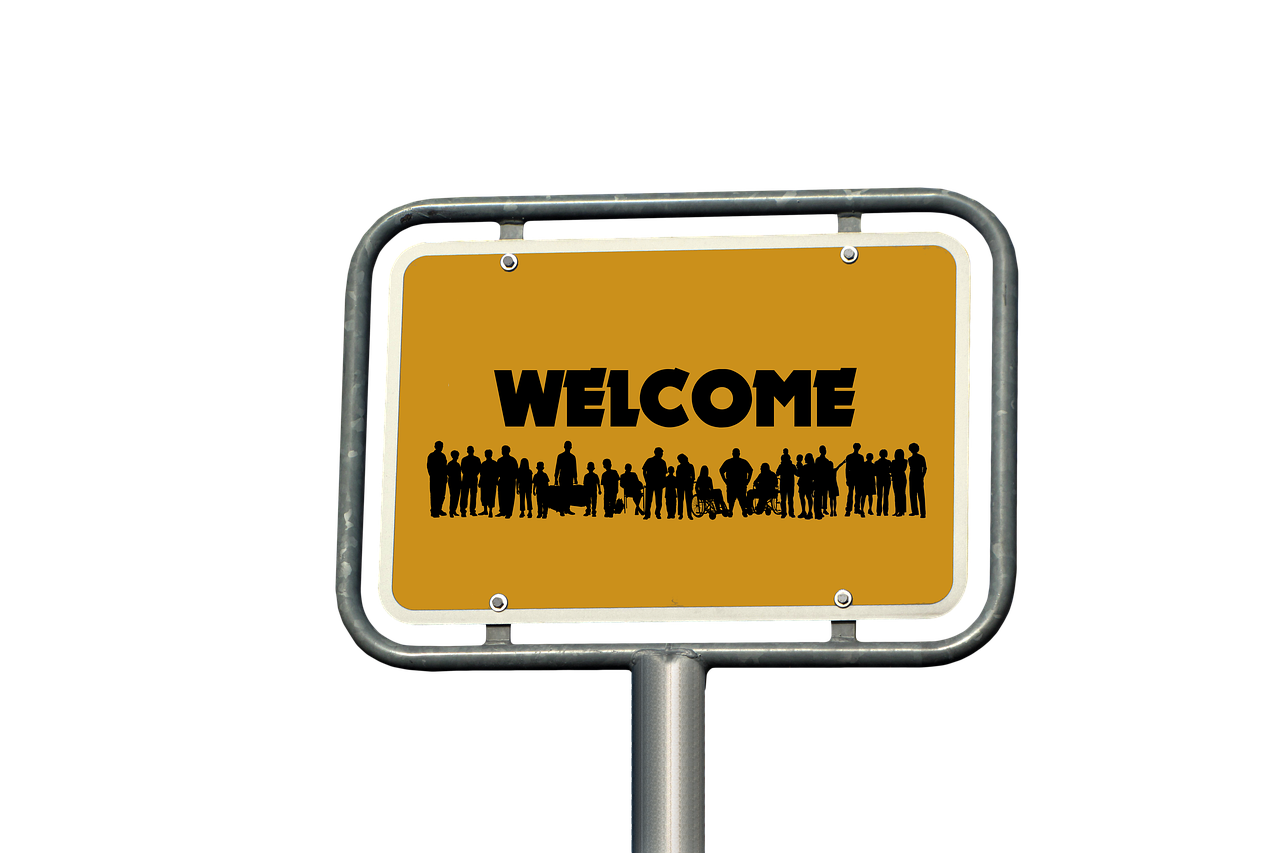
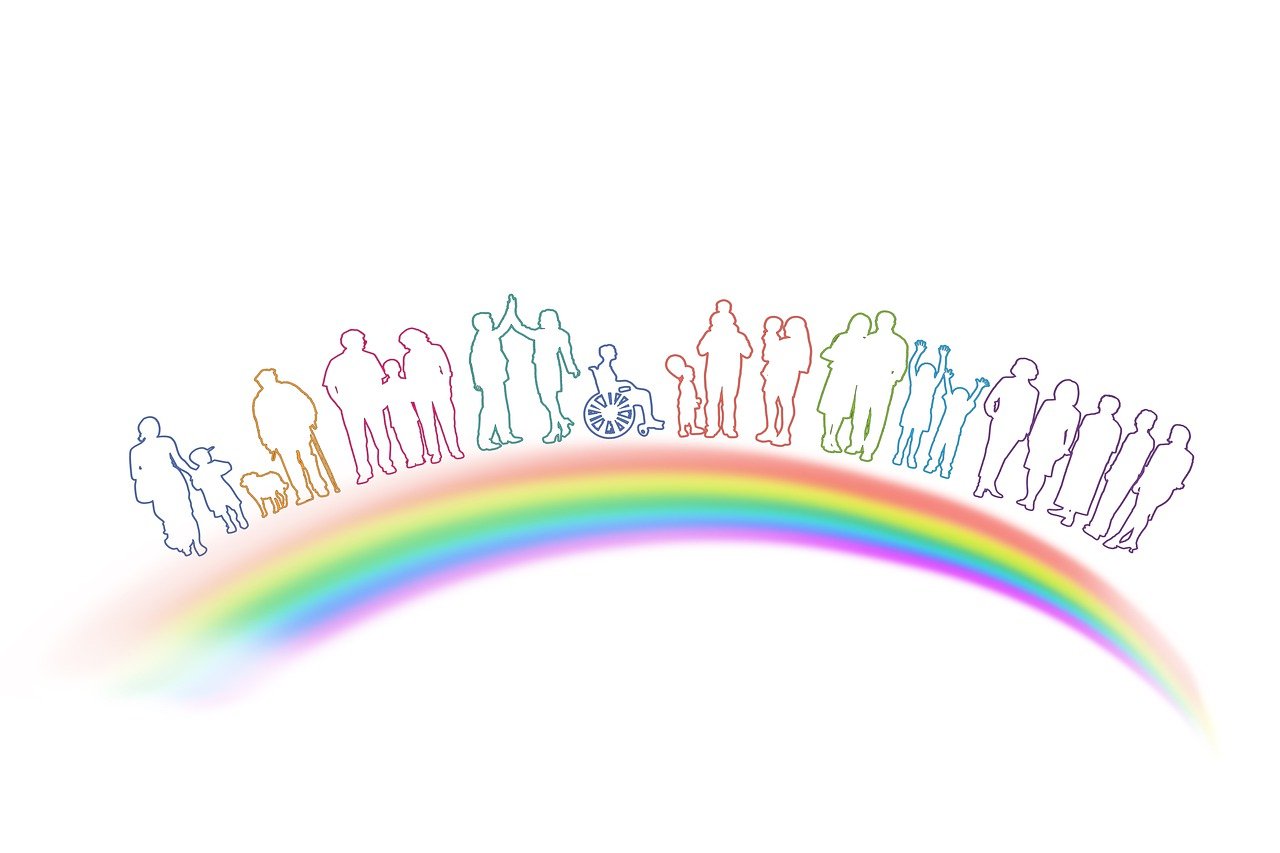
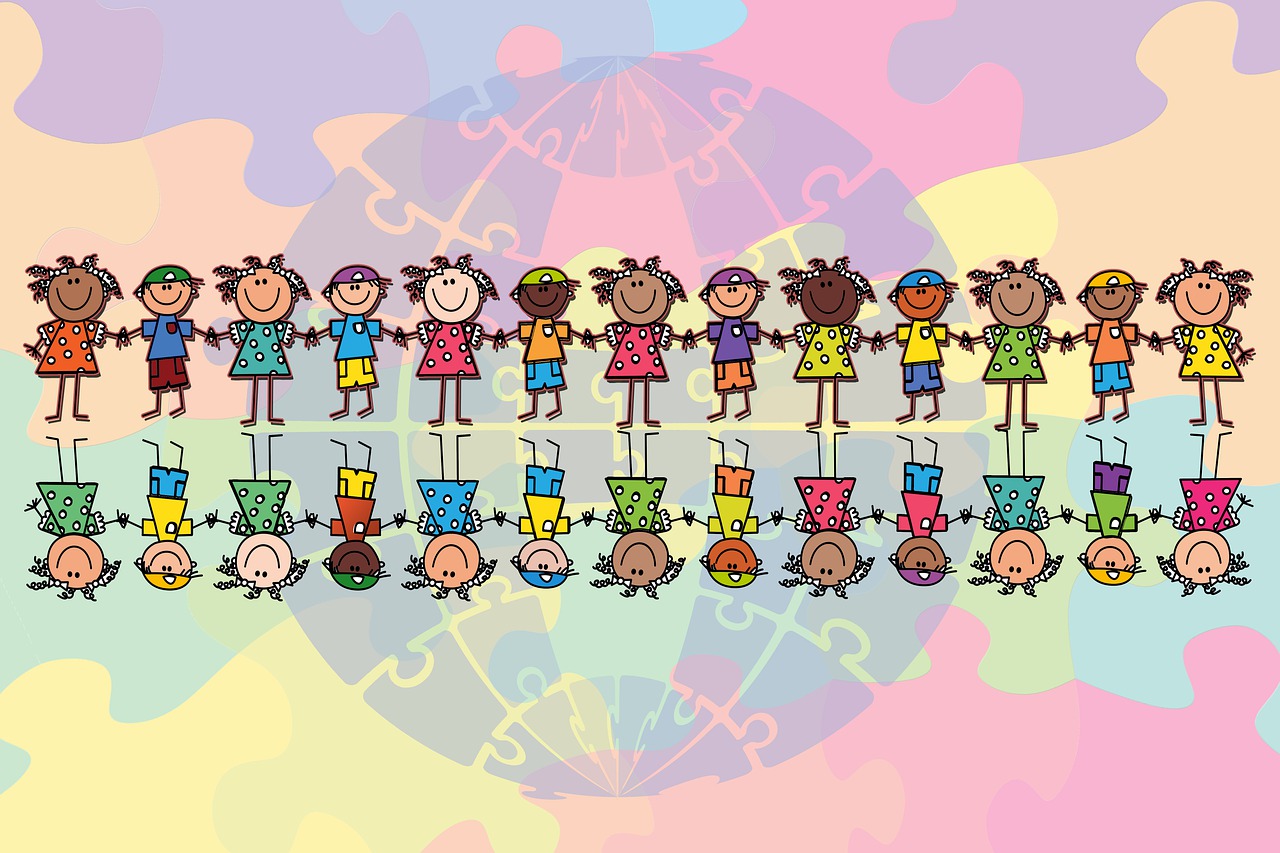
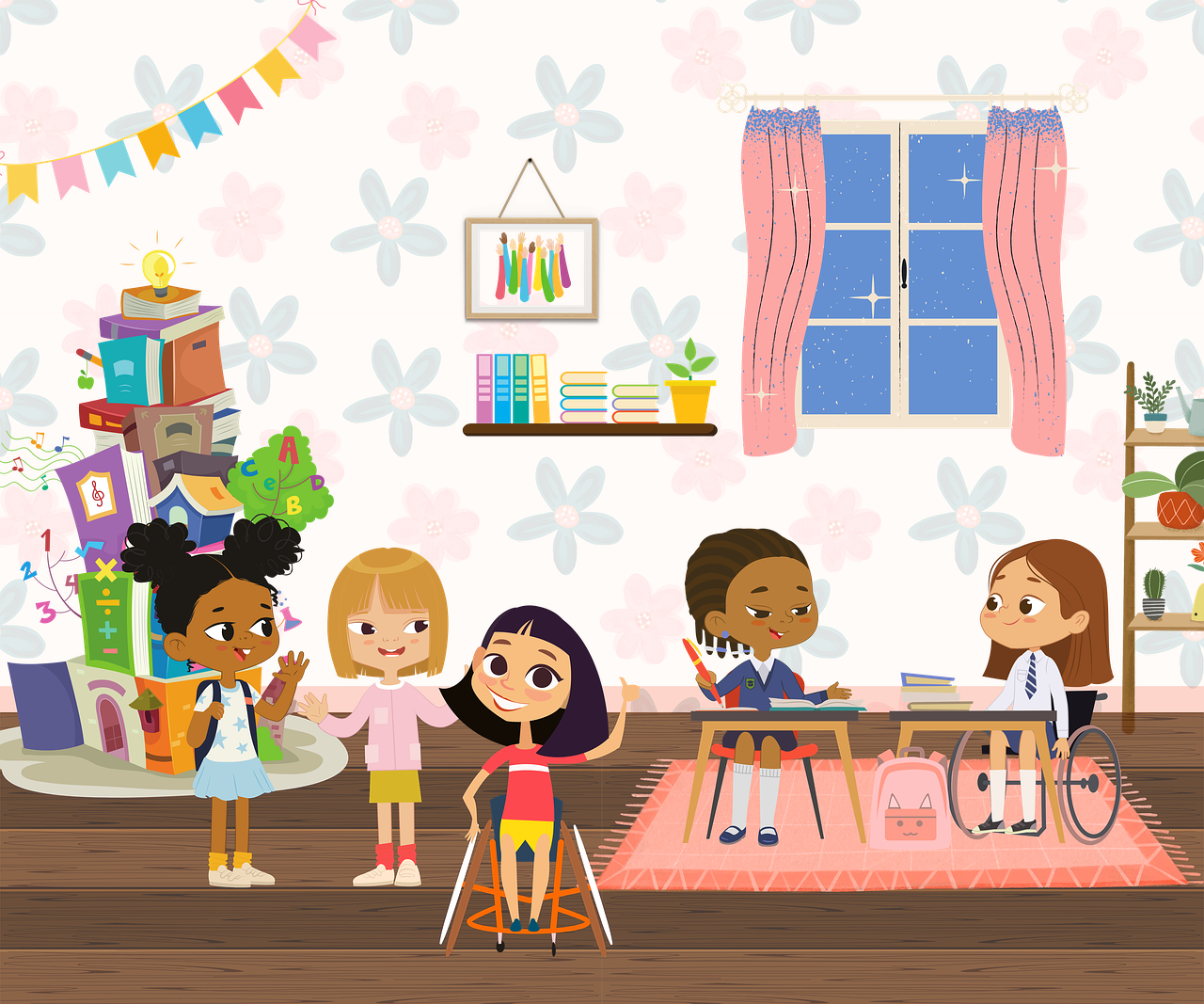

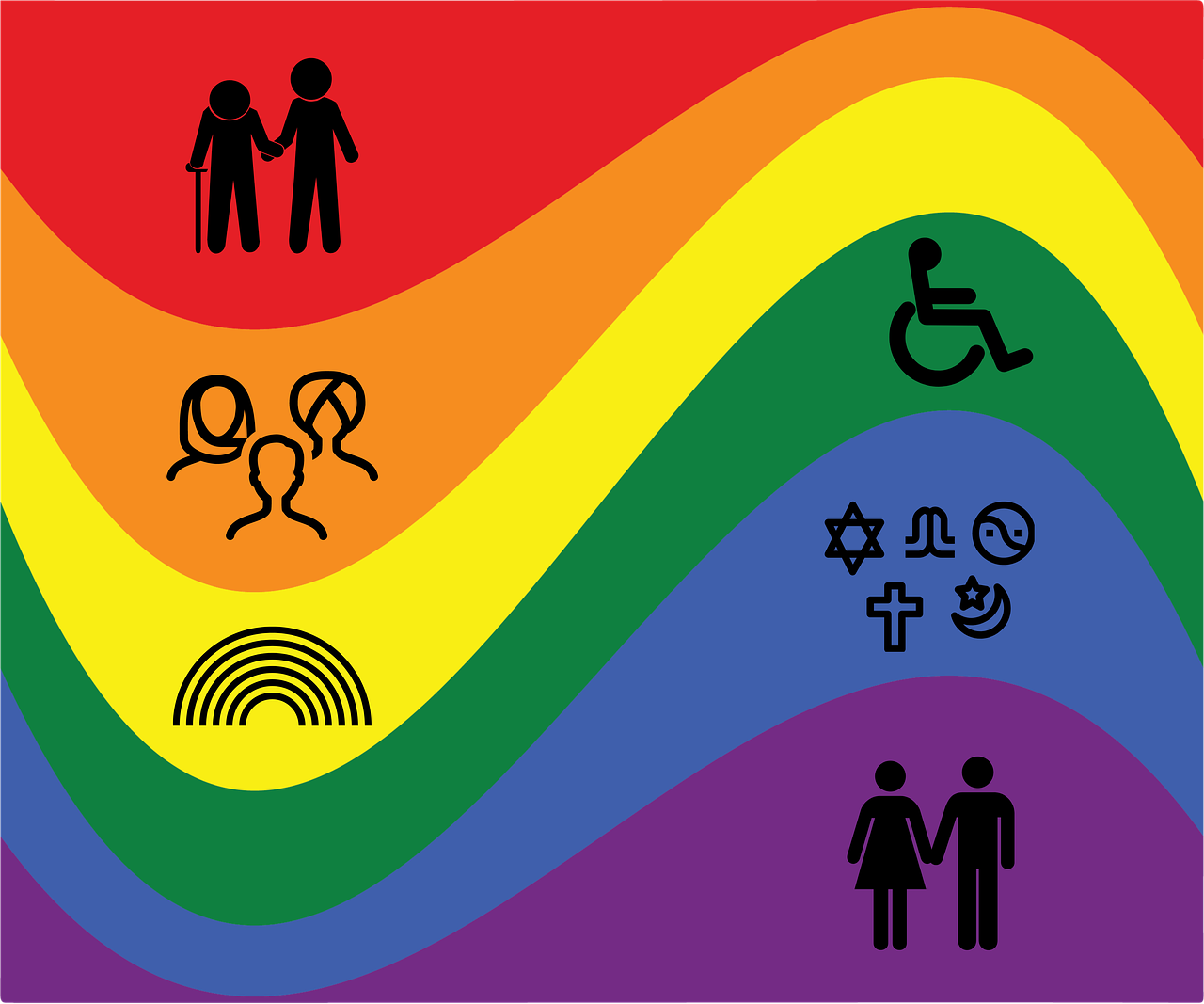
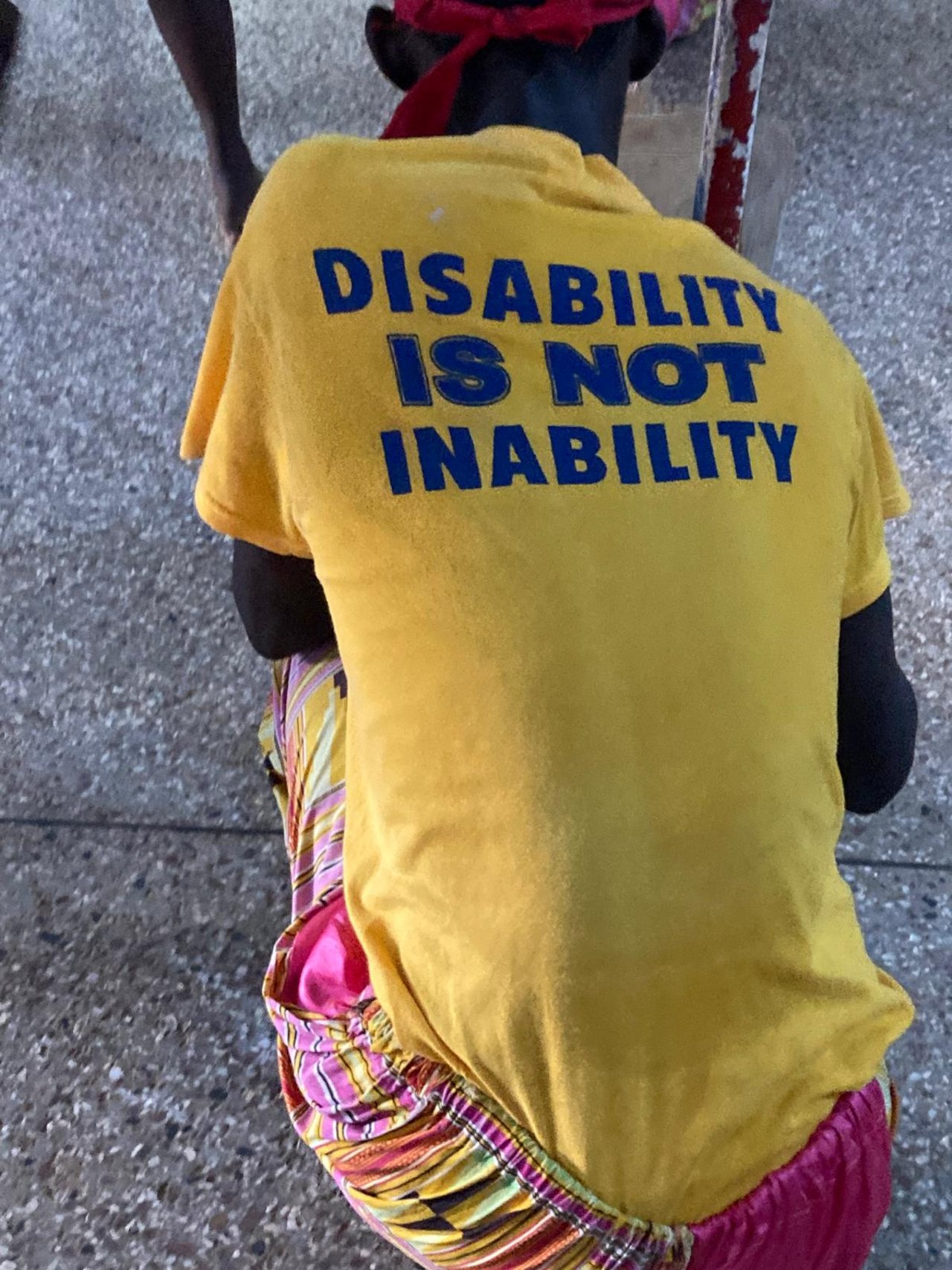

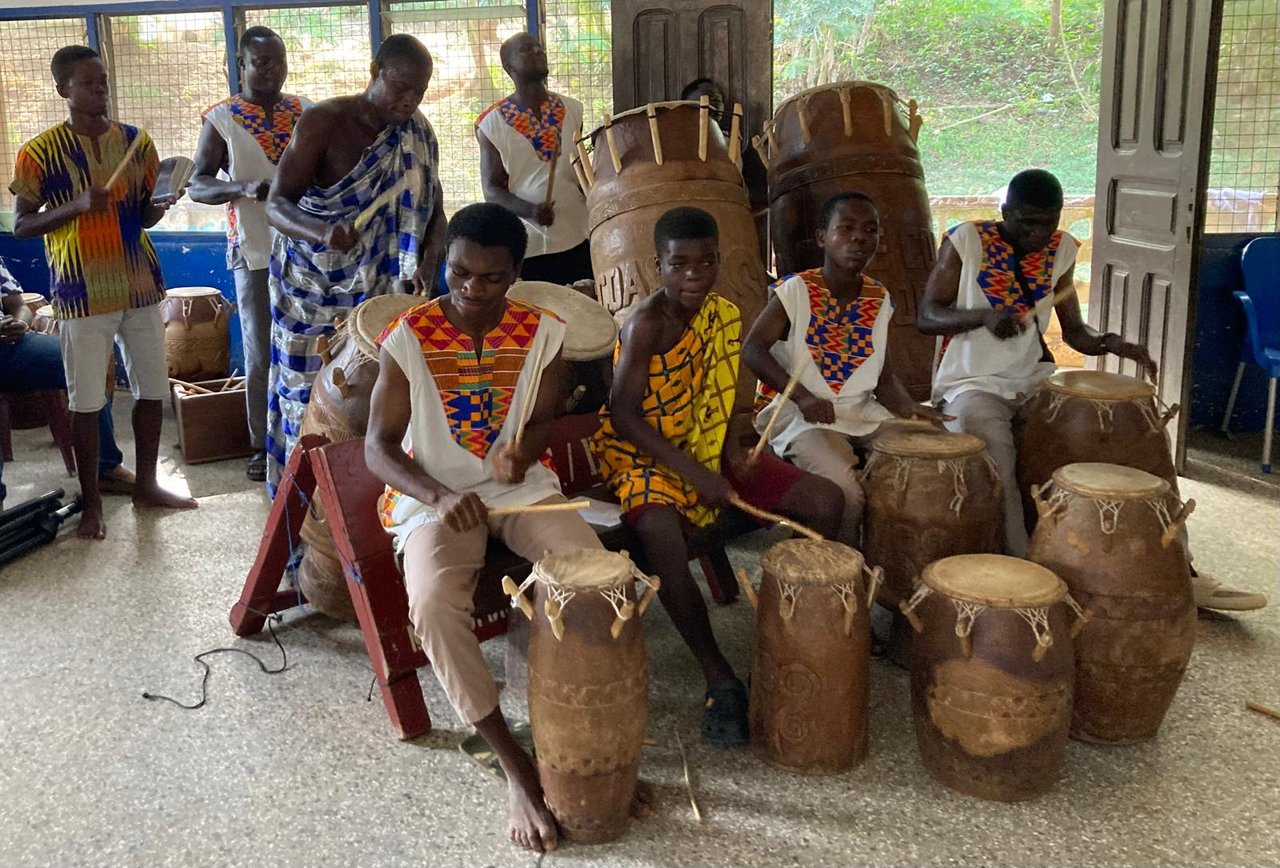
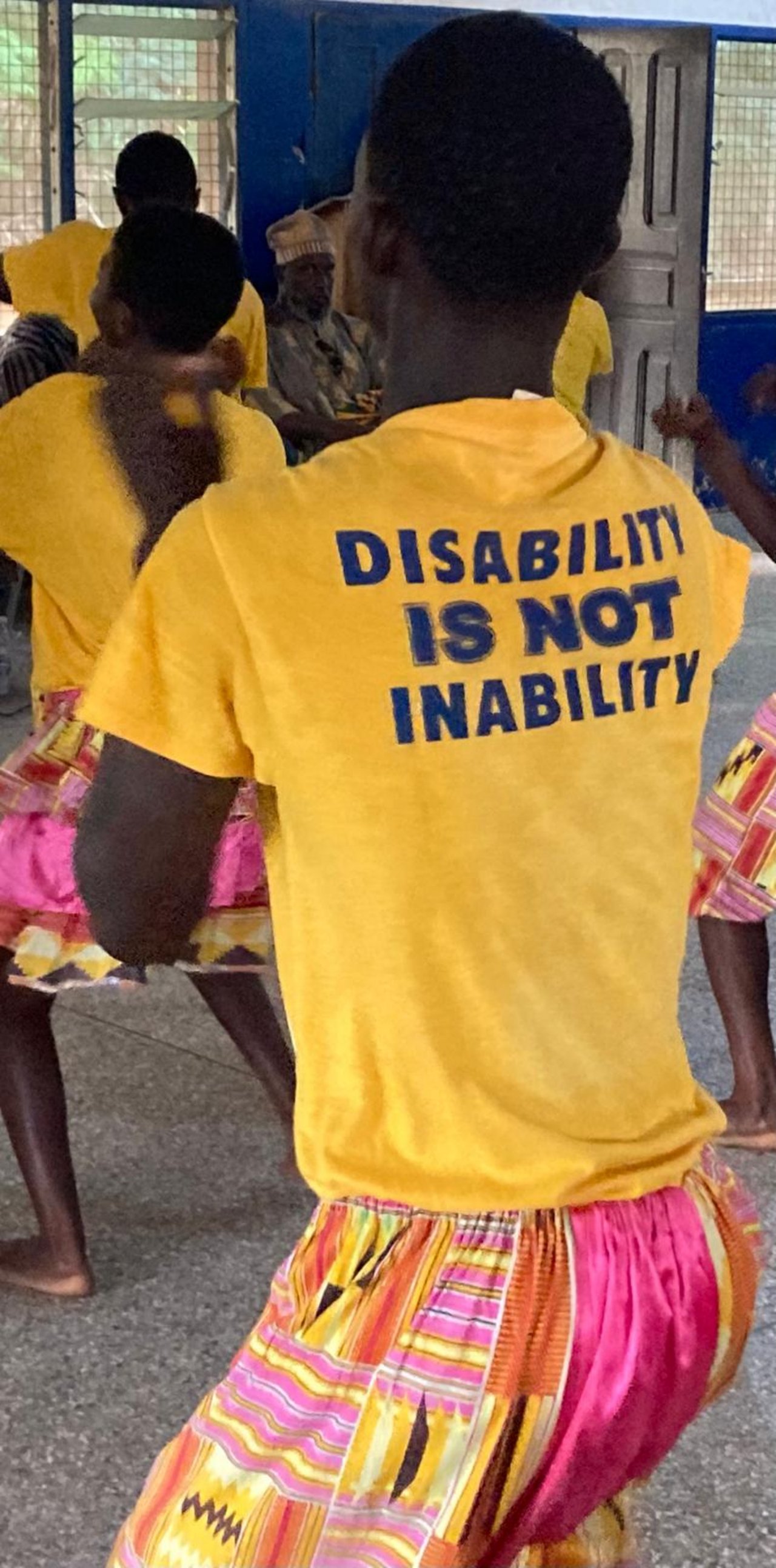

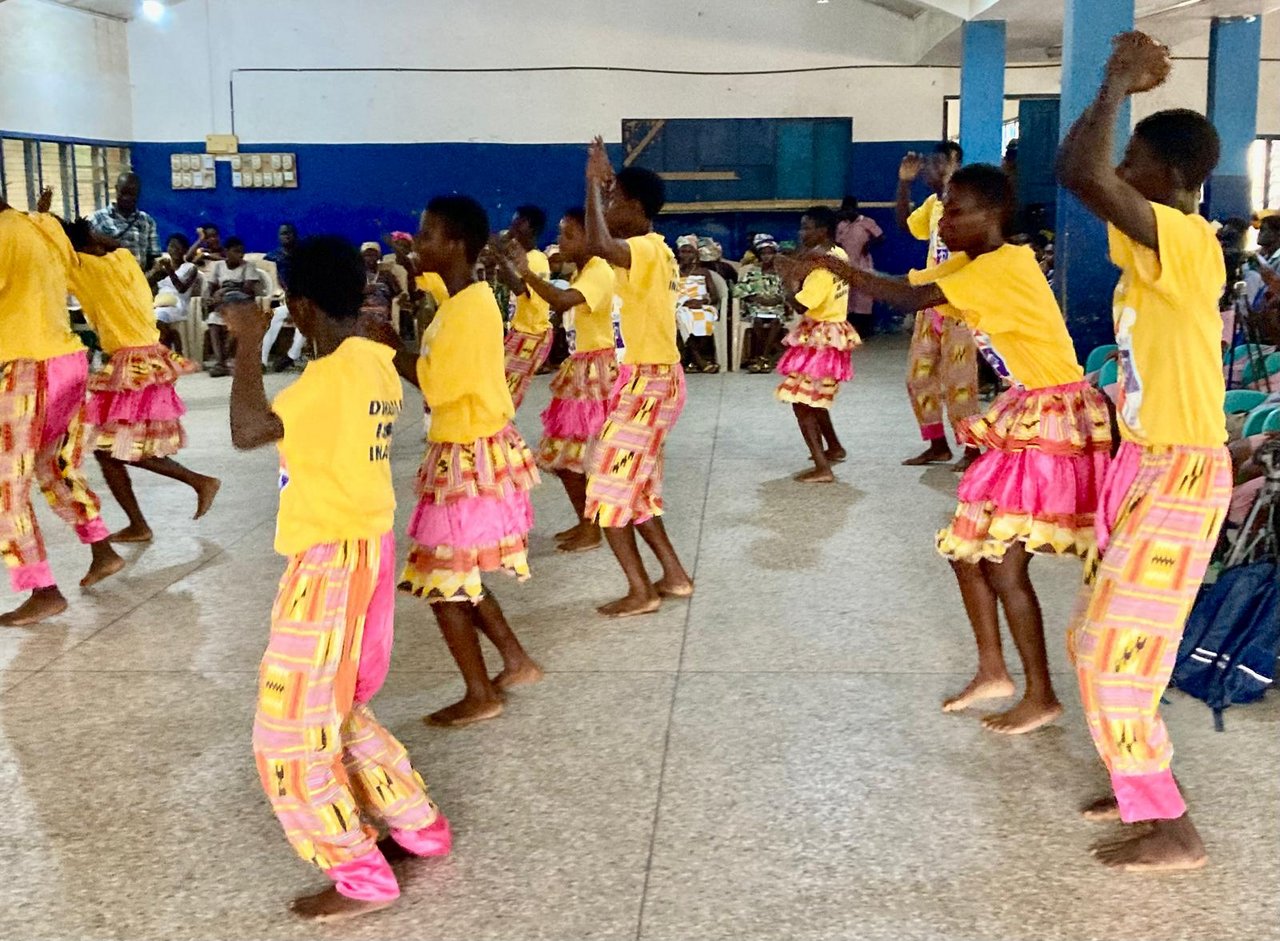
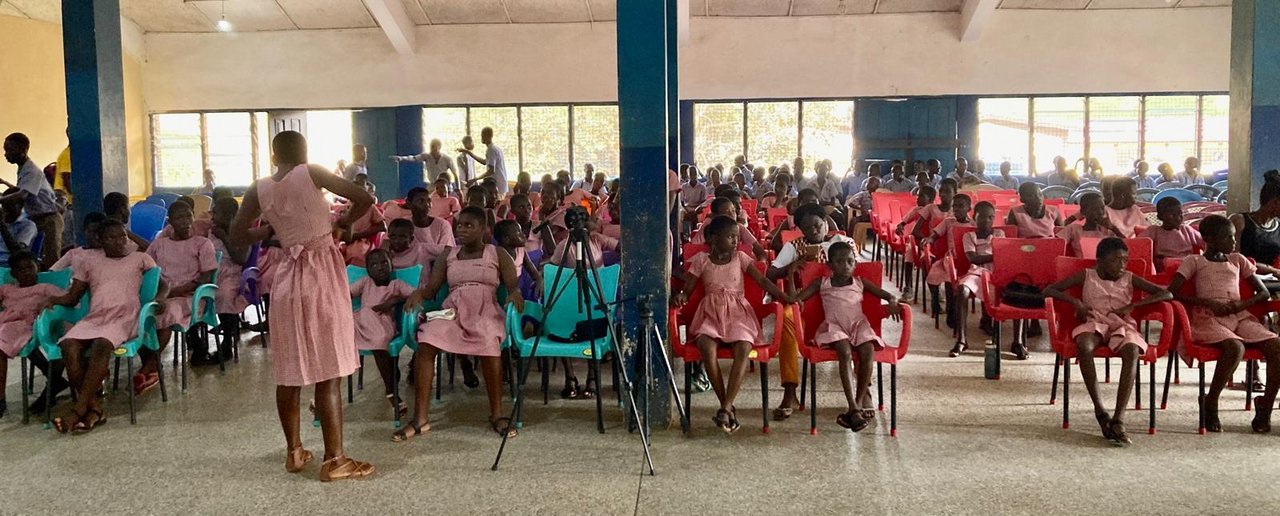
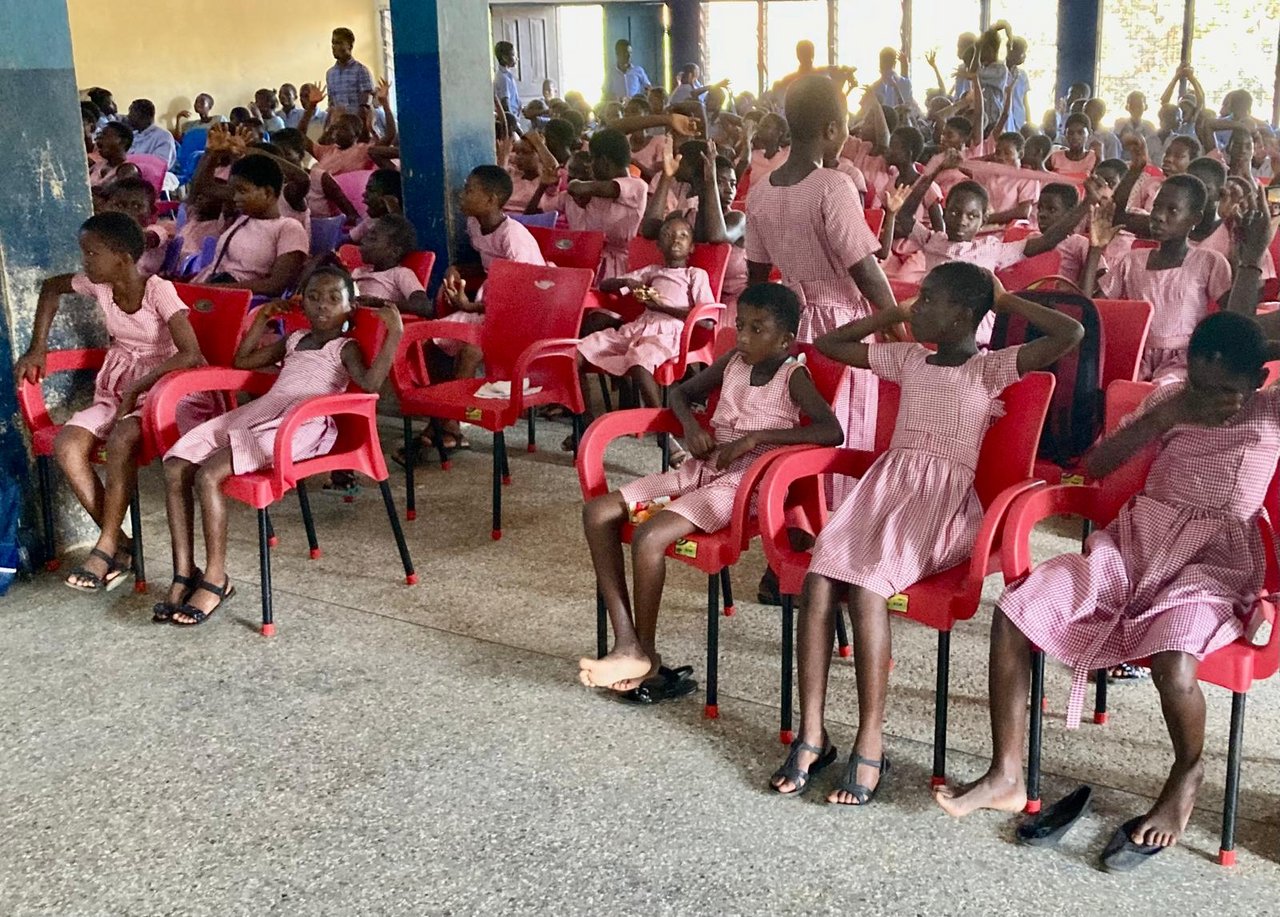
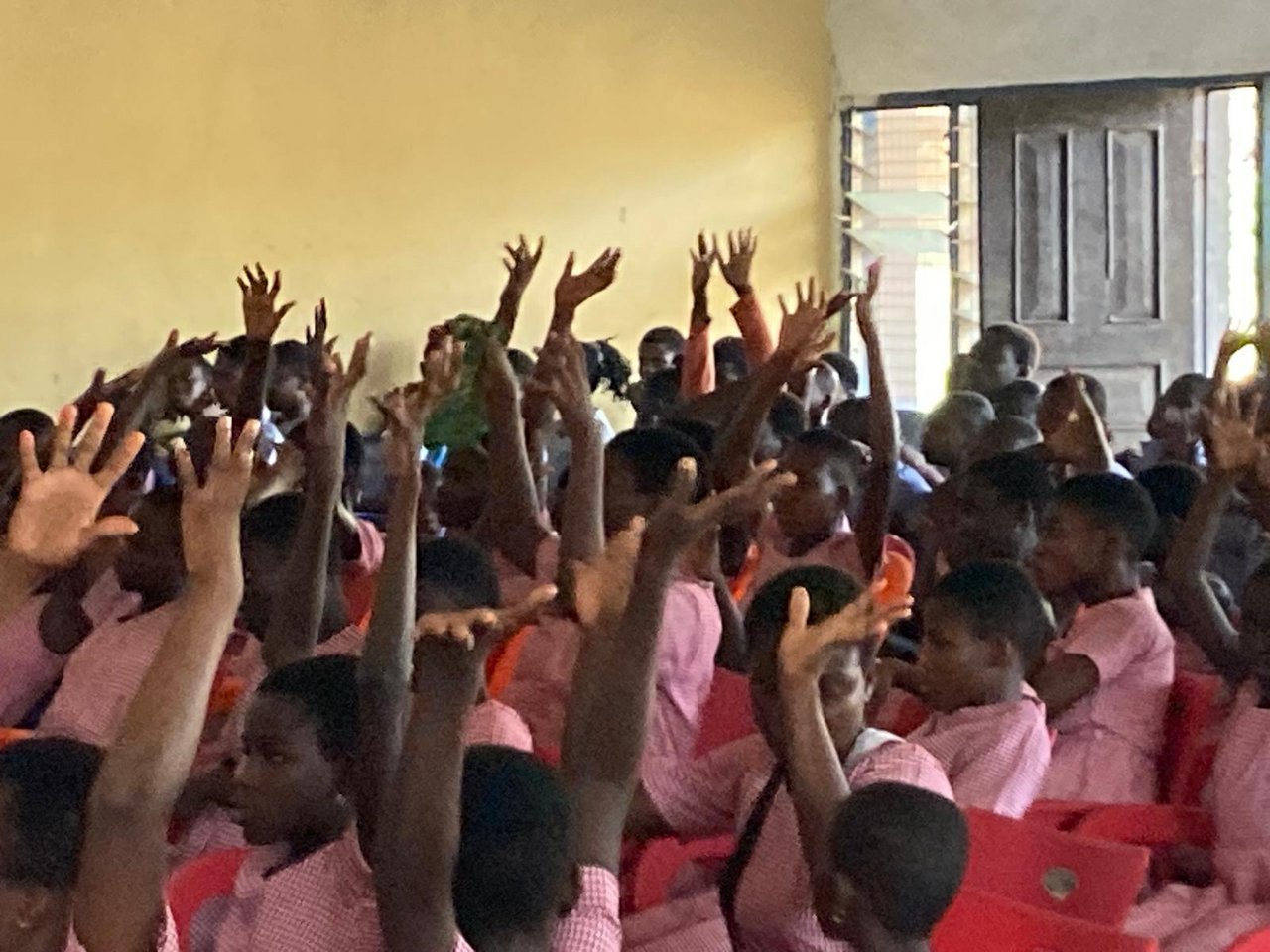

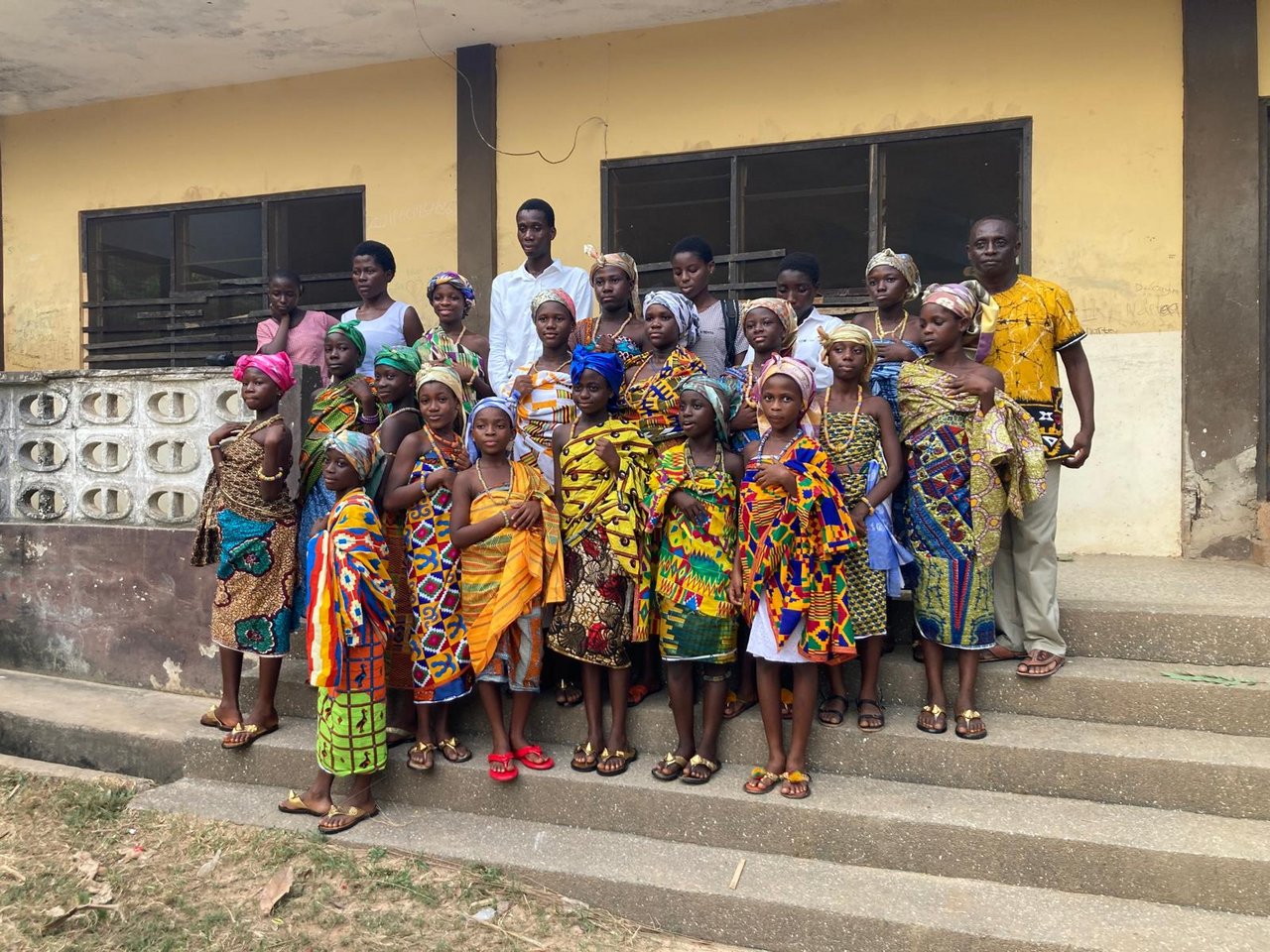



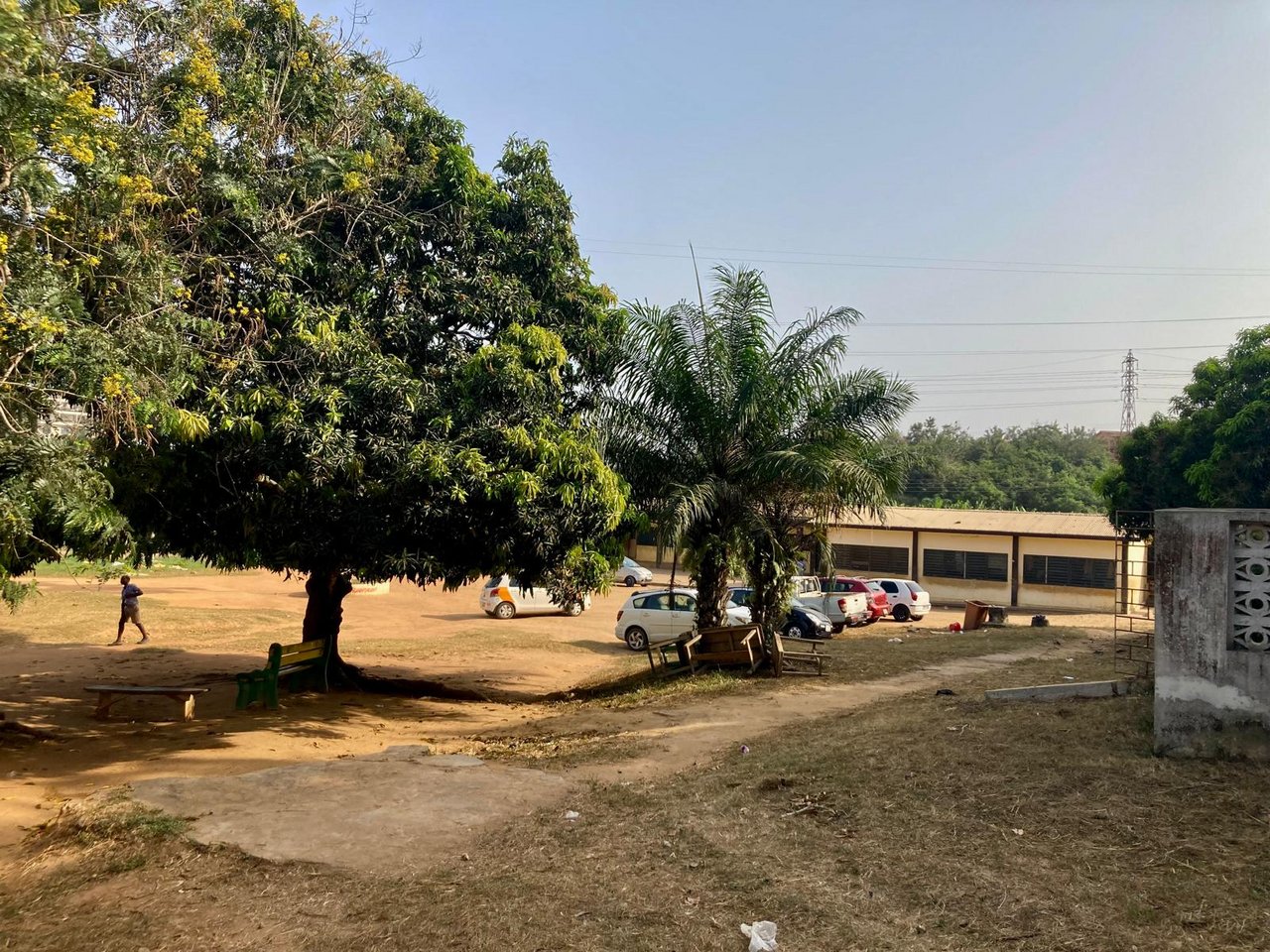
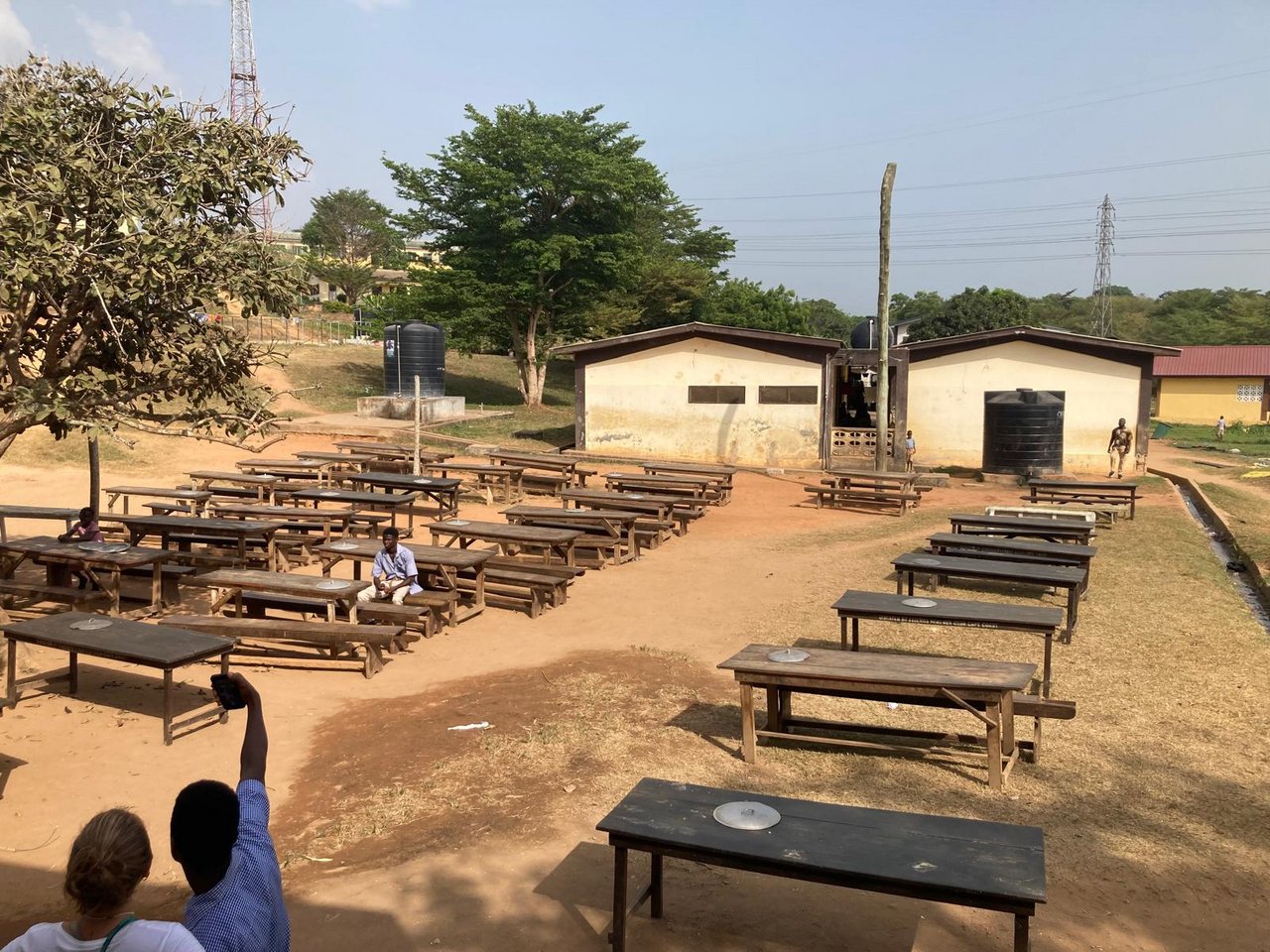
INCLUSION
DIVERSITY AS ENRICHMENT
Not only in Germany, everyone has the right to be there - whether at work, at sport or at the theatre. Whether old or young, disabled or not, everyone is allowed and should participate in social life. Here we explain how inclusion can succeed and what it actually means.
It is not only in Germany that everyone has the right to participate - whether at work, in sport or at the theatre. Whether old or young, disabled or not, everyone can and should participate in social life.
Cape Coast School for the Deaf and Blind
Inclusion can also succeed in Ghana and is guaranteed to be optimised. A good example is the Cape Coast School for the Deaf and Blind.
Their motto:
‘Disability is not inability’
People with disabilities have exceptional talents, strengths, character and the will to succeed. The Cape Coast School for the Deaf and Blind was founded in 1970 with 15 students. It currently has 454 pupils. The hearing and visually impaired children of school age benefit from the formal education it provides, with the latter using Braille for reading and mobility orientation.
Many people with disabilities feel neglected and excluded from opportunities for self-improvement and wealth creation. This leads to frustrations that can plunge them into unwanted life crises. So says Abraham Annang Yemoson, the school's director.
The school is strategically located between the Aggrey Memorial Zion Senior High School and the Ghana National College along the Cape Coast-Takoradi Highway.
Inclusion: Being different together
Everyone should be able to be an active part of society
Inclusion does not mean giving advantages or special benefits to certain people or groups. Rather, it means that everyone can participate in our society and that everyone has something to gain from advancing inclusion:
For example, if there are fewer stairs, people with prams, elderly citizens or people with disabilities can participate much better in social life. If all people can participate as a matter of course, differences become increasingly unimportant.
No matter how old someone is, what gender, whether with or without disabilities and regardless of origin: through inclusion, everyone has an equal opportunity to participate in social life.
Not exclusion, not integration... but inclusion!
In an inclusive society, no one is left out. Just because someone does not fit into the "grid" does not mean that they cannot be a full member of society. On the contrary: diversity is quite normal and even an enrichment in an inclusive world!
Inclusion also does not force anyone to bend: no one should frantically pretend or adapt in order to conform to a norm. In case of doubt, that doesn't work anyway. Rather, everyone should be open to other ideas instead of criticising a person for being different.
Only when every person is accepted as he or she is, and deviation from the standard is no longer understood as a weakness but as a potential strength, can we speak of inclusion - of a colourful society in which we are allowed to be different. And that is even a good thing.
Inclusion as a human right
Inclusion is a social and political goal in Germany. That is why our Basic Law has stated since 1994:
"No one may be discriminated against disadvantaged because of his or her disability".
(Article 3, Basic Law)
This means that the state may not treat people with disabilities differently from all other fellow citizens of our society. Since 2002, there have been further laws to advance inclusion:
The Act on Equal Opportunities for Persons with Disabilities (BGG), for example, obliges public authorities to make their websites, forms and applications barrier-free.
The further development of the BGG also regulates accessibility issues in the areas of construction, infrastructure and the use of sign language as well as plain language.
This means that every person must in principle have access to them and can actually use them. In 2006, the General Equality Act (AGG) was added, which many people also call the Anti-Discrimination Act. The law prohibits discriminating against people with disabilities.
For example, if you apply for a job and you have a disability, the employer is not allowed to reject you because of your disability. Similarly, no one may be treated differently at school or when a contract is signed between two people because of a disability.
The law also protects other groups of people: For example, it is now not allowed by law to treat people differently than others because of their skin colour, religion or age.
The UN Convention
on the Rights of Persons with Disabilities has also been in force in Germany since 2009.
In it, 175 states around the world committed themselves to further promoting inclusion in their societies and to follow three principles in particular:
Self-determination
People with disabilities may decide for themselves where they want to live or what profession they want to learn.
Participation
They have the right to participate in society.
Equality
People with disabilities should be able to live in the same way as everyone else.
With the UN Convention on the Rights of Persons with Disabilities, inclusion has thus been officially and internationally recognised and established as a human right.
A task for all of us
Inclusion only works if it is lived out in everyday life.
It is important that the state enshrines inclusion in law in order to establish a secure legal entitlement to services and to send a clear signal.
However, the commitment of all citizens in civil society is at least as important. Only when inclusion is really lived out in everyday life, for example at work, at school, in sports or in the cultural sector, will social participation become a tangible reality for all people.
That is why associations, initiatives, community projects & Co. in which everyone can participate if they want to, are so important. On our website, we offer a search function that makes it easy for you to find projects in your area on the topic of inclusion and social participation:
Do you run a project yourself and would like to make it known or accessible to a wider public? Then you can register your initiative on the Inclusion Map page. The search is offered by the Federal Government Commissioner for People with Disabilities and provides a good overview of inclusion projects in Germany.
Inclusion map
Here you can register your project or initiative on the topic of inclusion or find projects in your area yourself.
Your entitlement to benefits
The legal framework for benefit entitlements
In Germany, there is, among other things, an important law for people with disabilities from which benefit entitlements can be derived: Social Code IX (Rehabilitation and Participation of Disabled People).
According to these laws, people with disabilities have the right to participate in social life and, for example, to receive financial assistance if something should stand in the way of this.
With the Federal Participation Act (BTHG), one of the major social policy reforms of the last legislative period was passed at the end of 2016.
The BTHG was drafted as an article law with a focus on the revision of the Ninth Book of the Social Code. SGB IX will have the following structure in future.
SGB IX, Part 1 brings together the rehabilitation and participation law applicable to all rehabilitation providers.
SGB IX, Part 2 regulates integration assistance, which has been separated from SGB XII and reformed, as "special services for the self-determined living of persons with disabilities".
SGB IX, Part 3 contains the further developed law on severely disabled persons.
The BTHG creates more opportunities and more self-determination for people with disabilities.
A good education must be possible regardless of disabilities
For example, if a deaf student wants to attend a lecture, she can get a sign language interpreter. We explain here how to find an interpreter and what to look out for:
Finding a sign language interpreter
Aids enable participation in (working) life
A person with a visual impairment at work has the right to technical aids. Or if a person with a disability wants to go to the cinema or a concert, he or she can get personal assistance.
Everyone should be able to live a self-determined life
People with disabilities have the right under the law to shape their lives as they wish, as the UN Convention on the Rights of Persons with Disabilities described above also demands. They can decide for themselves what they want to participate in and how, without having to adapt.
In concrete terms: Inclusion at school
Inclusive schools take individual needs into account
Inclusion brings great changes when it is implemented consistently. Children with disabilities will no longer be taught in special schools but in regular schools. There, the teacher then designs the lessons together with colleagues from special education in order to provide the necessary support in class and to facilitate inclusion.
Inclusion brings great changes if it is implemented consistently. Children with disabilities will then no longer be taught at special schools, but will come to regular schools. There, the teacher then organises the lessons together with colleagues from special education in order to ensure the necessary support in class and to facilitate inclusion.
Depending on the needs, individual children also have personal assistants at their side for additional support. In class, the children's personal requirements are taken into account: individual learning pace, special worksheets, group work. Children with visual impairments can connect to the electronic blackboard via their computer, and for children with hearing impairments, attention is paid to good room acoustics.
How inclusive are German schools?
Nationwide, the percentage of children with special needs attending inclusive classes is around 37 per cent (in the 2015/16 school year), according to the latest calculations. Within Germany, the figures vary between about 25 (Hesse) and about 65 percent (Schleswig-Holstein).
The reason: education is a state matter. Each federal state approaches the implementation of inclusion differently. While some federal states close many special schools, others initially set up focal points for the different support needs at individual mainstream schools.
And how can inclusion succeed?
The implementation of inclusion is not going equally well at all schools, and there are still a few hiccups in one place or another. This is quite normal in transition phases and typical for system changes. However, there are good examples of successful inclusion at many schools, which is unfortunately often overlooked. And also that certain conditions must be met for successful inclusive teaching.
First and foremost, there needs to be political support: the state and local authorities are initiating more and more reforms in school organisation to give teachers and educators a boost in their daily work. Whether it is a question of structural changes or teaching concepts, the federal and state governments are striving to provide the best framework conditions for successful inclusion in schools. For example, future teachers must already be prepared for diversity in the classrooms during their training and additional special needs teachers must be deployed in the schools. Of course, financial resources also play a role here.
But: money is not everything.
Inclusion is also a question of attitude
Teachers - just like the parents of children without disabilities - must be open to the changes in the school and work together constructively. The success of inclusion in schools therefore depends heavily on the people on the ground.